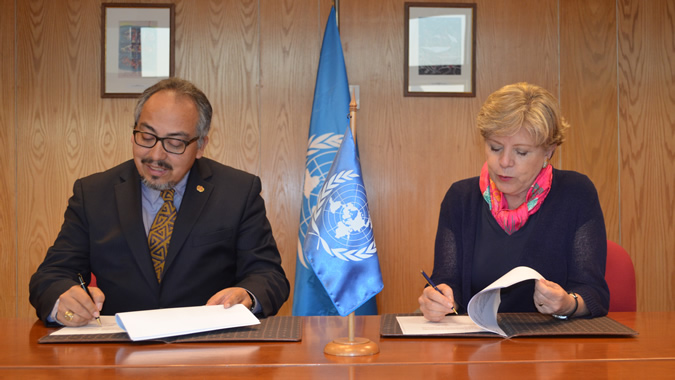News
With the goal of promoting and facilitating cooperation on matters related to the regional response to HIV/AIDS, the Economic Commission for Latin America and the Caribbean (ECLAC) and the UNAIDS Regional Support Team for Latin America signed a memorandum of understanding this month in Santiago, Chile.
The agreement, signed by ECLAC’s Executive Secretary, Alicia Bárcena, and the Regional Director of the Joint United Nations Program on HIV/AIDS (UNAIDS), César Núñez, states that both institutions share the commitment to promote universal access to prevention, treatment, care and support, reduce the spread of the disease, and contribute to the achievement of the Millennium Development Goals (MDGs).
The collaboration between both United Nations organizations will focus on areas such as: analysis and awareness-raising concerning the inequalities faced by the most affected populations; efficiency and sustainability of regional responses to HIV; monitoring the achievement of the internationally agreed development goals, including the MDGs and the Sustainable Development Goals; and the positioning of HIV as a priority within the post-2015 agenda.
In addition to the development and publication of studies on these matters, the memorandum opens the opportunity to explore other areas of cooperation on issues of common interest.
The publications will put special emphasis on the increase in data availability and the necessary information for governments to be able to plan and adopt the most effective responses to tend to the groups most vulnerable to HIV infection.



